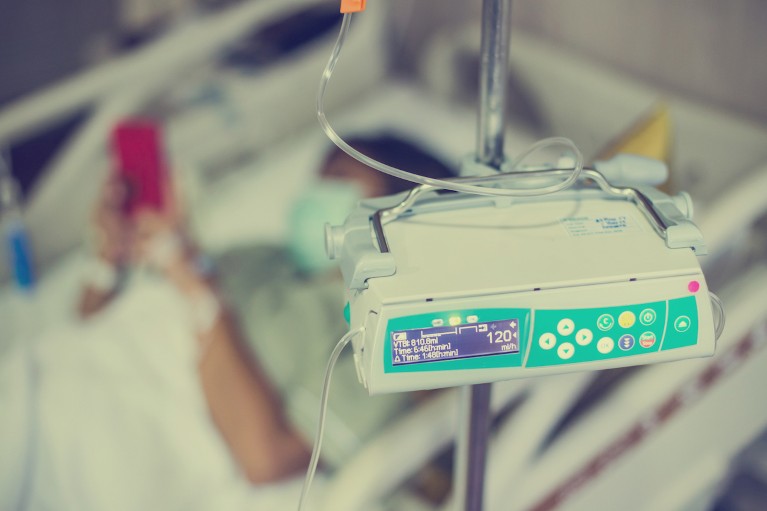
An infusion pump for chemotherapy. Credit: myrainjom01/iStock/Getty Images Plus.
Molecular biomarkers are used frequently in cancer therapy to guide the use of targeted drugs, such as monoclonal antibodies or immunotherapies. It is less common to find that the molecular features of the tumor predict the efficacy of chemotherapy.
A group of researchers from the Netherlands, the United Kingdom, and Italy found clues1 that mutations affecting a gene called KRAS, located on chromosome 12, could predict the efficacy of the chemotherapy drug trifluridine/tipiracil, used in patients with metastatic disease which didn’t respond to first- and second-line treatments. The gene was already known to clinicians, because its mutations can make tumors resistant to therapies based on monoclonal antibodies.
The study started from the whole-genome analysis of 37 patients who received trifluridine/tipiracil in 13 hospitals across the Netherlands. Among various genomic traits, one affecting the codon G12 of the KRAS gene was the one most significantly associated with reduced overall survival.
The researchers then created a retrospective cohort composed of 960 patients, 830 of which were treated in 31 clinical centres in Italy, and the rest in five centres in the UK. They compared the evolution of survival rates after the administration of trifluridine/tipiracil in patients with and without the KRAS G12 mutation and found a statistically significant difference in the death rates of the two groups.
To further validate these results, researchers re-analysed the data collected by the RECOURSE trial2, that in 2017 led to the drug being approved, separating patients according to the status of the codon G12 on the KRAS gene. The 185 patients with the mutant version did not get any significant extension in overall survival with respect to the 94 who received a placebo. Patients without the mutation had an improvement of overall survival (7.7 months versus 4.9 months).
“I would regard our results as a starting point for further research”, says Michele Ghidini, an oncologist at Ca’ Granda Ospedale Maggiore Policlinico in Milan who curated the collection of clinical data from Italian centres. “We need more robust, prospective data to change clinical guidelines.”
